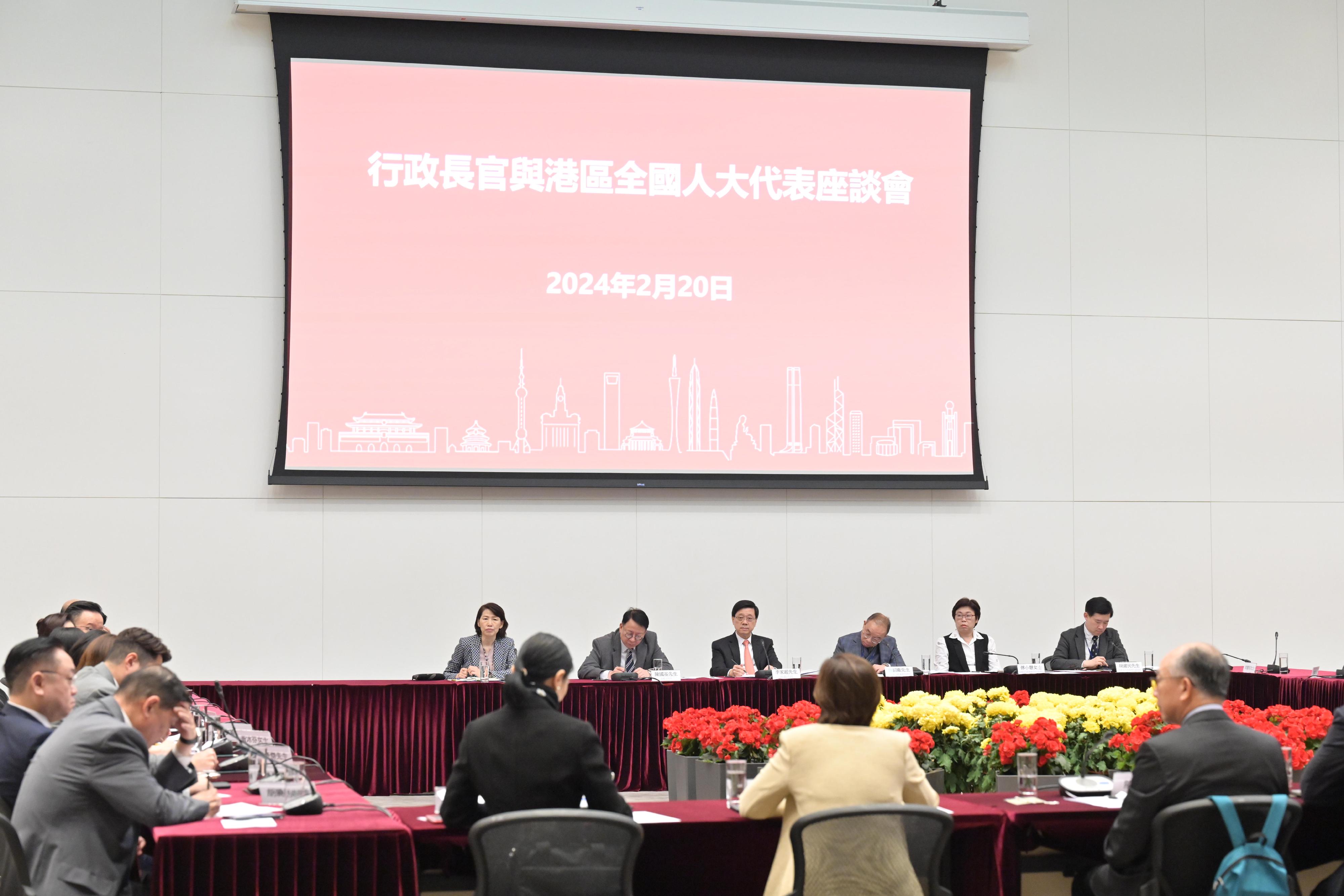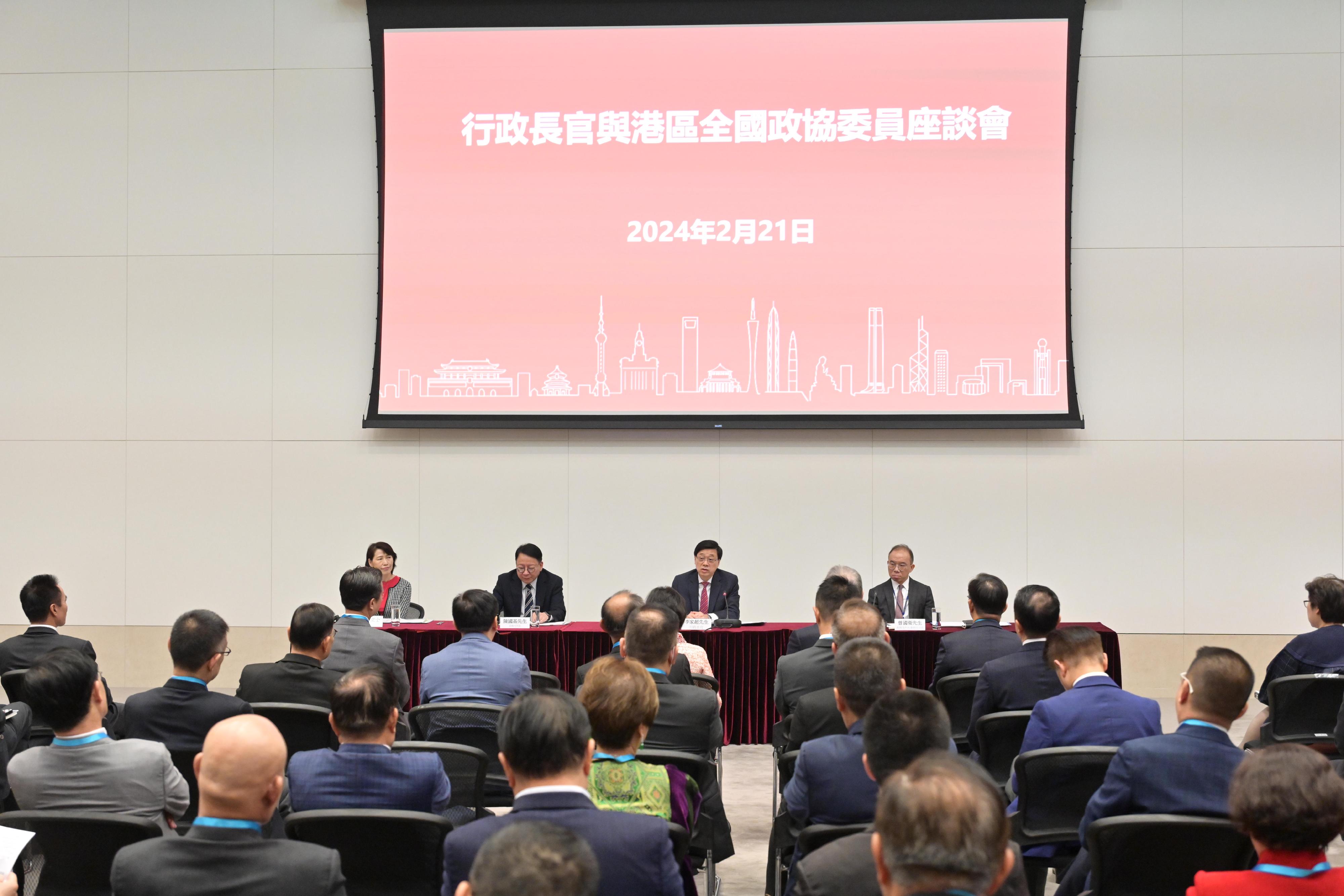Following is a question by the Hon Lai Tung-kwok and a written reply by the Acting Secretary for Health, Dr Libby Lee, in the Legislative Council today (February 21):
Question:
The Government has implemented the Elderly Health Care Voucher Scheme (EHVS) since 2009. Currently, the EHVS provides an annual healthcare voucher amount of $2,000 for eligible elderly persons aged 65 or above to choose private primary healthcare services that best suit their health needs. The policy objective of the EHVS is to enhance disease prevention and health management among the elderly. In this connection, will the Government inform this Council:
(1) of (i) the number of healthcare service providers participating in the EHVS and (ii) the participation rate of various healthcare service providers in the EHVS in the past three years, with a breakdown by healthcare profession (set out in a table);
(2) as it is learnt that the Colon Assessment Public-Private Partnership Programme (Colon PPP) has not accepted payment by healthcare vouchers since its launch in 2016, and some members of the public are of the view that since Colon PPP has the same objective of disease prevention, there is a lack of justifications of the authorities for not allowing them to use healthcare vouchers to settle the co-payment of Colon PPP, whether the authorities will consider changing the policy in order to avoid a situation where the elderly fail to receive the relevant assessments in a timely manner due to financial problems; and
(3) as it is learnt that the various public-private partnership programmes launched by the Hospital Authority currently do not accept payment by healthcare vouchers from members of the public, whether the authorities will consider changing the policy in order to avoid a situation where the elderly fail to participate in the relevant programmes in a timely manner due to financial problems?
Reply:
President,
In consultation with the Hospital Authority (HA) and the Department of Health (DH), the consolidated reply to the question raised by the Hon Lai Tung-kwok is as follows:
(1) The number and participation rate of healthcare service providers in Hong Kong participating in the Elderly Health Care Voucher Scheme (EHVS) in the past three years are tabulated by profession as follows:
| |
Number of Healthcare Service Providers (Participation rate) |
| As at 31.12.2021 |
As at 31.12.2022 |
As at 31.12.2023 |
Medical
Practitioners (Note 1) |
3 326 (56%) |
3 528 (57%) |
3 703 (59%) |
Chinese
Medicine Practitioners (Note 1) |
3 887 (56%) |
4 080 (57%) |
4 366 (58%) |
| Dentists (Note 1) |
1 296 (65%) |
1 331 (65%) |
1 477 (69%) |
| Occupational Therapists (Note 1) |
150 (10%) |
156 (9%) |
187 (11%) |
| Physiotherapists (Note 1) |
651 (29%) |
728 (31%) |
826 (33%) |
Medical
Laboratory Technologists (Note 1) |
63 (5%) |
58 (4%) |
57 (4%) |
| Radiographers (Note 1) |
54 (5%) |
53 (4%) |
63 (5%) |
| Nurses (Note 1) |
274 (1%) |
260 (1%) |
290 (1%) |
| Chiropractors (Note 1) |
133 (54%) |
136 (52%) |
164 (56%) |
| Optometrists (Note 1) |
838 (88%) |
838 (86%) |
888 (85%) |
| Audiologists (Note 2) |
– |
– |
33 (52%) |
| Clinical Psychologists (Note 2) |
– |
– |
13 (3%) |
| Dietitians (Note 2) |
– |
– |
36 (28%) |
| Speech Therapists (Note 2) |
– |
– |
39 (11%) |
| Total: |
10 672 (24%) |
11 168 (23%) |
12 142 (23%) |
Note 1: In calculating the EHVS participation rate of healthcare service providers (i.e. medical practitioners, Chinese medicine practitioners, dentists, occupational therapists, physiotherapists, medical laboratory technologists, radiographers, nurses, chiropractors and optometrists), those healthcare professionals practising in the public sector or are economically inactive, e.g. not practising in Hong Kong, have been excluded.
Note 2: Since April 28, 2023, coverage of the EHVS has been extended to include primary healthcare services provided by four categories of healthcare professions under the Accredited Registers Scheme for Healthcare Professions (i.e. audiologists, clinical psychologists, dietitians and speech therapists). In calculating the percentage of participating healthcare service providers of these four professions under the EHVS, the numbers of registrants on the registers of the relevant healthcare professional bodies accredited under the Accredited Registers Scheme for Healthcare Professions of the Government have been used.
(2) and (3) The HA has launched a variety of clinical public-private partnership (PPP) programmes on a pilot basis since 2008 with the designated one-off funding from the Government to provide patients with more medical choices through collaboration with the private sector. The Government allocated a sum of $10 billion in March 2016 to the HA for setting up the HA PPP Fund to enhance PPP programmes being undertaken on a pilot basis, as well as consider introducing new PPP programmes. Currently, the HA operates nine (Note 3) PPP programmes and estimates that the projected financial requirement for PPP programmes in 2023-24 is around $735 million.
To cater for the public’s growing demand for colon assessment, the HA launched the Colon Assessment Public-Private Partnership (Colon PPP) Programme in 2016. Subsidies are provided under the programme to eligible patients for receiving relevant services including clinical assessment, colonoscopy procedure and explanation of assessment results. Where necessary, the private specialist will perform biopsy, polypectomy and discuss follow-up treatment plan with the patient. Colonoscopy requires clinical diagnosis by a specialist to confirm the importance of this treatment for related symptoms and conditions, and sufficient specialist assessment is necessary to ensure that the clinical risks can be managed and the procedures safely conducted. Only patients who are on the waiting list for colonoscopy at public hospitals and are suitable for undergoing the examination at private medical institutions, including day procedure facilities, are invited to participate in the Colon PPP Programme and the HA will only select patients who are classified as relatively stable cases and fit for pre-assessment bowel preparation at home. Unlike general disease prevention and health management under primary healthcare services, the relevant services fall under secondary specialised care and are required to be conducted in hospitals or day procedure centres. The HA will offer a one-off fixed subsidy to each patient who need to make a co-payment. Patients eligible for waivers are entitled to the fee waiver arrangements under the PPP programmes (including the Colon PPP Programme) to prevent them from being unable to afford medical charges due to financial difficulties. These patients include Comprehensive Social Security Assistance recipients, voucher holders at Level 0 under the Residential Care Service Voucher Scheme for the Elderly, and Old Age Living Allowance recipients aged 75 or above.
On the other hand, the Government launched the EHVS in 2009 to provide financial incentives for elderly persons to encourage them to receive primary healthcare services such as preventive care, screening, and management of chronic diseases at private institutions (excluding specialised services), thereby changing their health-seeking behavior to achieve early detection and treatment for health protection, and to facilitate them to choose private primary healthcare services that best suit their health needs by providing them with additional healthcare choices on top of the existing public healthcare services.
Elderly Health Care Vouchers (Vouchers) are mainly applicable to disease prevention and health management under primary healthcare services, excluding inpatient services and day surgery procedures. As set out in the Primary Healthcare Blueprint, resources allocated to the EHVS are to be optimised to effectively achieving the objective of promoting primary healthcare. Therefore, in addition to the 14 healthcare professions under the EHVS, Vouchers are also applicable to individual primary healthcare programmes including the Vaccination Subsidy Scheme, personalised services at District Health Centres (DHCs)/DHC expresses and the Chronic Disease Co-care Pilot Scheme. The Government also launched the Elderly Health Care Voucher Pilot Reward Scheme last year to incentivise elderly persons to make better use of Vouchers for primary healthcare services.
Since the services of the Colon PPP Programme and most PPP programmes operated by the HA are outside the scope of primary healthcare services, the Government currently has no plan to extend the coverage of the EHVS to these PPP programmes in light of the aforementioned policy objectives of the EHVS.
Regarding the General Outpatient Clinic (GOPC) PPP Programme which is under the scope of primary healthcare, as it is already subsidised by the Government (the public is paying the same fee as that charged by the HA, which is $50 per visit), in general it will not receive payment by other forms of government subsidies such as Vouchers. When reviewing the GOPC PPP programme and repositioning the GOPC to take priority care of the socially disadvantaged groups in future, the Government will also examine the relevant matters regarding the use of Vouchers in different programmes.
Note 3: The nine PPP programmes currently operated by the HA are: 1) GOPC PPP Programme; 2) Cataract Surgeries Programme; 3) Haemodialysis PPP Programme; 4) Project on Enhancing Radiological Investigation Services through Collaboration with the Private Sector; 5) Colon PPP Programme; 6) Glaucoma PPP Programme; 7) Trauma Operative Service Collaboration Programme; 8) Breast Cancer Operative Service Collaboration Programme; and 9) Radiation Therapy Service PPP Programme.
read more



